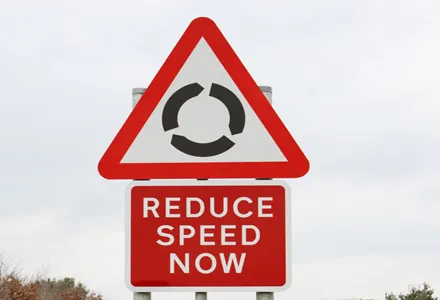
Suggestions are being put forward on how best to optimise road safety in these difficult times, when hospitals are under pressure due to the Corona Virus. One important suggestion from a group of five health researchers is that speed limits should be reduced in all urban areas to 20mph/30km/h. Meanwhile speed limits on dual carriageways and motorways should be reduced to 50mph/80km/h according to the researchers.
Lowering speed limits will ensure that any collisions that do occur will be less severe, reducing the risk of crash victims requiring hospitalisation. Crash impact data also shows that lower speed limits also reduce the incidence of collisions.
The five researchers made their call for lowering speed limits in an article published in the British Medical Journal (BMJ).
The group also pointed out that in countries where speed limits have been reduced, there has been an ensuing drop in road crash numbers and also in the severity of any impacts, with an overall reduction in deaths and injuries.








